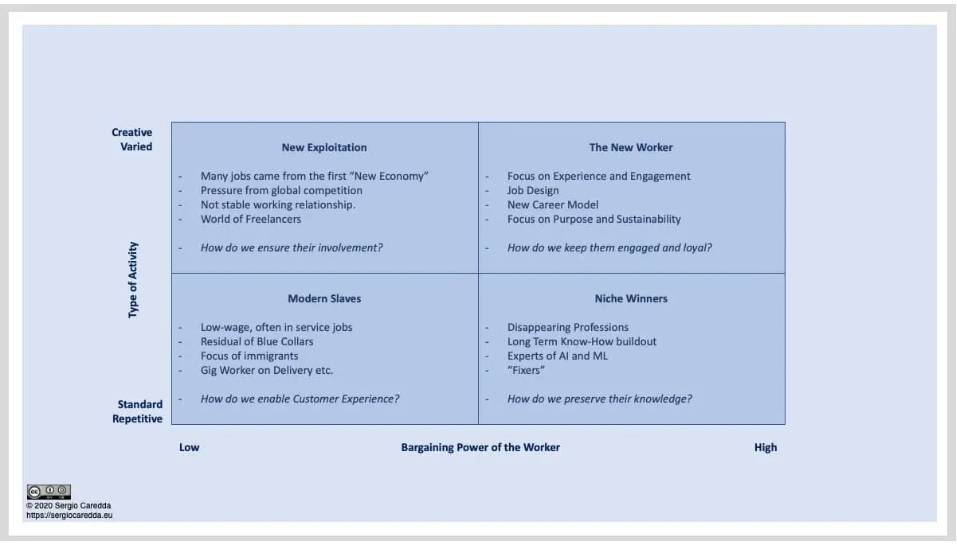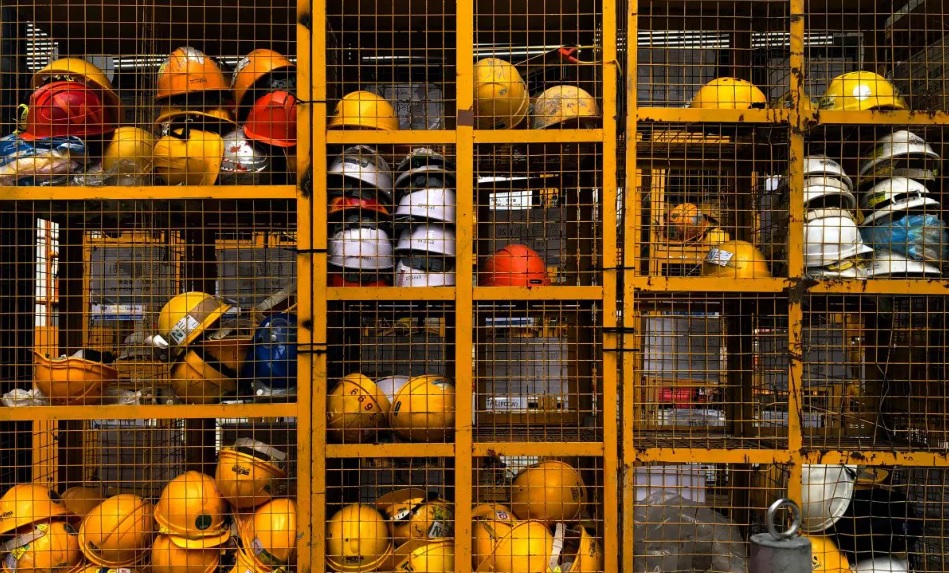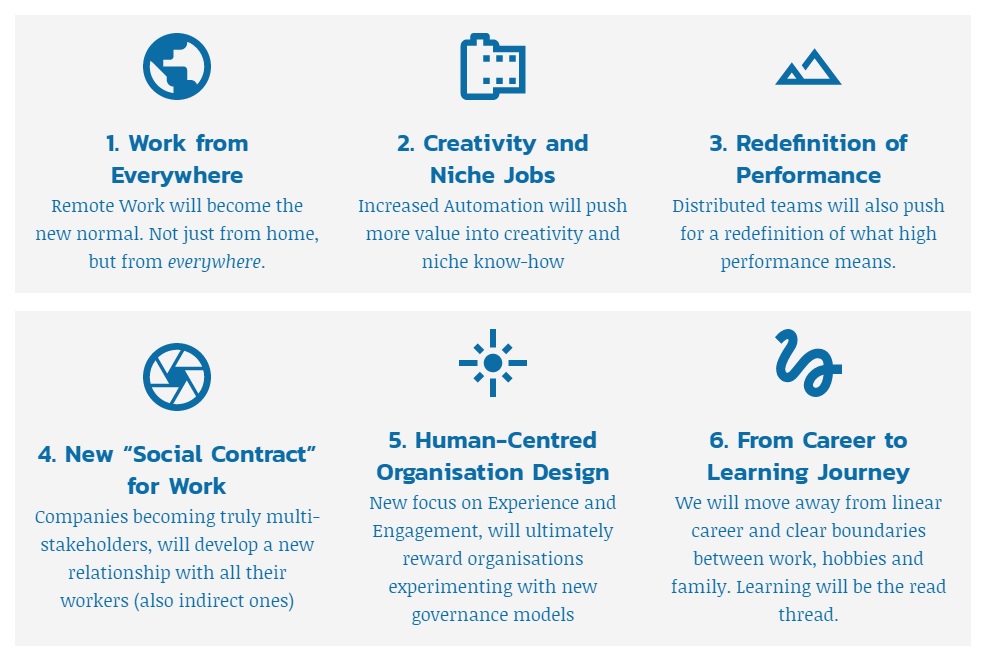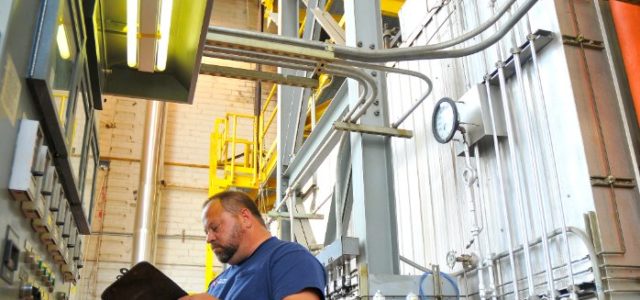On the 1st of May, I wrote a short post about “Rethinking Work”. In a moment where the Covid19 pandemic seems to be at least partially under control, and governments around the world are all planning their “reopening” strategies, work appears to be one of the big losers in the first impacts of the economic downturn.
On the other side, there have been many calls to look at what can be positively built after this crisis. I have actively taken part in the #GoodAfterCovid19 initiative, and genuinely think that there is hope from a lot of different perspectives.
Lars Schmidt posted on LinkedIn a request for comment that prompted some more reasoning from my side. He was looking for “bold ideas” on the way the World of Work will evolve.
I’ve answered the request for ideas (many of which have now been collected into a shared document), but this triggered some more thoughts on how to address the issue, that I will try to explore into this article.
Reinventing Work for me is not just about adjusting to some new technologies, but rather rethinking the entire ecosystem of Work, making sure we consistently think of it inclusively, correcting the current distortions that are today present.
And we will start this journey precisely from this, the current distortions that affect the way Work is treated by law and finance.
We will then go through a PESTLE analysis of current Covid-19 situation, and then finally check the real trends affecting Work and introducing, though, a distinction on how each pattern will affect different clusters of workers.
Updates: This article has been updated after its initial publication.
– May 11th: Added summary to the first part of this article and its conclusion. Added new sources to the PESTLE analysis. Corrected a few typos and hyperlinks.
Reinventing Work: is it possible?
In my answer to the Linkedin Question, I have mentioned three elements that need to be put in place to ensure that a true “Reinvention” of Work can happen.
- Changes in Labour Law that help redefine what Work is and reshape the related protection system, avoiding abuses.
- Changes in Accounting Rules that help redefine the role of Work in the organisational performance. Not just a Cost, but a vital Investment.
- Changes in Value Perception. What is the Value of Work? How do you define the related compensation? With imperfect job markets, also this part needs redefinition.
Work and Labour Law
Current labour law is still based on an old roman distinction between two types of contracts both concerning Work. The locatio conductio operarum is a contract whereby one party agrees to supply the other with a specific quantum of labour.
The locatio conductio operis is a contract whereby one party agrees, in consideration of money payment, to provide the other not with work, but with the result of labour.
This dichotomy persists and can be traced more or less in all legal systems between employment and service contracts of other types (generally linked to freelancers and self-employed).
What does this mean? In an employment contract, I usually am committing, in exchange for a salary, to deliver an amount of Work measurable in time. The origin of these contracts descend from the master/servant relationship and have been heavily impacted by labour movements of the XVIII and XIX century.
One of the pillars of the social reforms asked was the fight against the so-called piece work contracts, by which employees were paid for the number of units produced. This consolidated the view that employees had to be paid for their time, not the results of their Work.
Social fights have historically focused on this type of contract, which in most countries has a much higher level of legal protection than the service contract. The reason is simple: it was always considered that individual employees did not have real bargaining powers, whereas self-employed professionals would.
With the changes in production systems and the birth of the modern corporation, more and more Work moved away from the factories, and into a new generation of jobs that have been collectively named “white collars”.
Work legislation has been slow in adapting, but in general terms, these recognised some level of responsibility for the pursuit of objectives, for a limited number of high ranked officials in a company.
Often, the legal concept of “executive” and the level of real delegation and management do not correspond.
With the beginning of the automation revolution and the outsourcing trend, the relative weight of blue-collars has more and more diminished on the total workforce. Looking to purse efficiency, more and more companies have resorted to trying to compress labour cost also by exploring alternative collaborations.
Some jobs have been outsourced to individuals. Instead of having an employment contract, individuals accepted to become a self-employed freelance, giving up some level of protection for the certainty of some income.
This has started the development of a grey area of workers, often called pseudo-self-employed which do not have the bargaining power of true self-employed professionals, and yet have to resort to accepting non-employment contract to ensure survival.
This trend has consolidated over time, also with the so-called gig-worker. Many countries have tried to legislate to offer additional protection for this class of workers, with varying degrees of success.
This has brought to a new reality, where the contracts initially developed for the people that needed more protection (lower-paid jobs, front-line worker, entry-level roles etc.) are instead protecting an already wealthier part of the working population.
Work and Accounting Principles
You heard it over and over again, companies claiming that people are their most valuable assets. In accounting terms, this is unfortunately not true. Companies do not control their employees.
Therefore, these are not treated as assets. Salaries are simply a line in the operative expenses portion of the balance sheets. Accounting principles are not in tune with the way that organisations have evolved. And this poses different types of issues:
- If I can automate a job with a robot, I have an accounting incentive to invest in the robot because I can classify that as an investment and include depreciation over time, having the additional advantage of slashing a “fixed cost” immediately.
- There are no incentives, in accounting terms, on investing in training and development activities for people.
Another element amplifies this issue. In business control terms I can distinguish between what I pay for employment contracts (which is part of my fixed costs) and what I pay for services (which instead is conceptually part of my variable costs).
Which also explains the general convenience of moving towards these type of contracts as we have seen.
Work and Value Definition.
A third element to consider is linked to the perception of the Value of Work. How can I measure it? The angle I want to mention is the same that is coming from the discussion about CEO compensation and their ratio towards the average pay in the company. How is the Value of a salary defined?
Again, we have a big difference between those that have a bargaining power (often supported by executive compensation data providers, often hired by CEOs to “pump” compensation) and those instead that do not have it, and that often have only hope in collective bargaining and minimum wage regulations.
I believe this issue is much broader and linked to the more general question of how Value is defined in our society, as Mariana Mazzucato mentions in her excellent book The Value of Everything. For example, Why are salaries higher on average in industries like finance and consulting, vs those of productive sectors?
People work hard and companies make big profits, but employees don’t see that they share in the wealth they help to create.
Mariana Mazzucato, Interview by Lynn Parramore
This element has a variety of impacts. The main one is making the labour market a completely imperfect market where demand and supply are not syncing correctly, which links to ripple effect that includes migrations (both inside countries and across countries), issues in education systems and so on.
The understanding of value will also mean looking at entirely new narratives in Job Design. Today very few organisations really look at Potential Value that roles and jobs can perform in an organisation, as they are “locked” into a cost perspective only. That could unleash a lot of potential new value for companies and organisations across the world.
Without an overriding strategy of redefining work, workers represent cost savings rather than freed capacity to create new value for the business or the customer.
Jeff Schwartz, John Hagel, Maggie Wooll, Redefining work for new value, Deloitte
Consequences
The three elements above create an immediate number of consequences, among which, for example:
- In a period of difficulty, a company has an incentive to slash costs by reducing the workforce, even if this means lowering opportunities for future growth.
- Companies have incentives in outsourcing work to self-employed, even if this means less control on their “talent”.
- In most legislations, it is difficult to indeed link compensation to the Value generated by the individual, even at higher levels in the organisation.
There are also several cultural consequences. The fact that Work is still seen as a quantity rather than as an output. The fact that salary increases are often the result of seniority rather than performance.
The fact that “command and control” seem to be implicitly recognised by labour law (every HR manager knows that the only moment when you truly want a “micro-manager” is when you are in a labour court).
A First Conclusion
Reinventing Work is possible, as all the above elements are known and considered a limiting factor by many. What’s needed is the political will to “change the rules of the game”, aligning the current labour market with the needs of both organisations and the overall economy: an aspect not to forget.
What needs to be done are strong acts to deliver the following:
- A Change of Labour Law that puts in discussion the traditional split between “employment” and “free-lance” work, recognizing all the shades in between. Two options are there: either recognise the same degree of protection for all type of workers or create a system that links decreasing protection to the true bargaining power of each worker.
- A Change in Accounting Rules that ensure the recognition of the true value of “Human Capital” for a firm. This is not an easy task, as the ripple effects (for example on taxation) are many and variegated. A first step would be to ensure that Financial Analysts and Venture Capitalist start using a consistent set of intangible indicators to evaluate the investments in people. A change in the GAAP is however required, to ensure that also smaller companies can align on the new behaviours.
- A Change in Value Perception requires the strongest intervention because it will need a reinvention of the job markets as we know them, and a redefinition of the criteria we know on how salaries are established. A big endeavour, that will profit from changes in Labour Law and Accounting rules.
The above three elements are not entirely new. But what is then preventing a new definition of Work? Before discussing this, I think we need to have an in-depth look at the broader scenario, heavily impacted today by Covid19.
Current Trends and Covid-19
Covid-19 has, for sure, amplified some existing trends and created new ones. I’ve used a typical PESTLE framework to try to organise the vast amount of information that is currently available.
I’ve been collecting this for some weeks now, and although I’m conscious a lot of this might be old in two weeks, I think it gives a good picture of what the world might look. I’ve specifically focused on some trends that might impact Work.
Political:
- Political Discussion is going through several topics that were previously not acceptable (from increased debt to revised economic plans). Some political principles can potentially become more flexible. Governments have overall intervened in a variety of different ways.
- There are significant forces pushing governments for increased power of the State, primarily through nationalisation of critical assets (airlines in particular).
- Some more authoritarian governments may be reluctant in giving back the emergency powers obtained through the Covid-19 emergency. There is a growing number of actors that are portraying the economic crisis that is looming on the horizon, as a crisis of capitalism.
- In this framework, there is a growing sentiment towards measures of Universal Basic Income also from actors such as the World Economic Forum. Spain has already implemented new legislation, and other EU countries are considering the same. These all seem to be answers to the current perceived fragility of our systems.
- What will the role of China be? We’re currently seeing two opposing trends: one that seemed consolidated looked at an efficient country able to combat the pandemic and limit its internal damages, acting to support other countries in need after. In this second phase, however, there seems to be an attempt to rebuke the role of this country, up to the assertion of a “man-made” virus.
- The efficiency of the lockdown seems not so clear now, and requests for more transparency are coming from multiple angles. All this seems to consolidate the fight for supremacy between the US and China as superpowers.
- There seems to be a common thread in internal politics in many countries with a more populist and nationalist sentiment and an overall retreat of globalisation.
- With the reopening process underway, we’ll need to understand how countries will reopen their borders, and guess what the impact will be in the long run.
- For sure, economic and social issues will pull governments to focus inward. This has potentially unknown consequences, especially has some phenomena like migrations, have not been resolved at their roots. At the same time, the interconnectedness of international economies will push governments to seek the support of those foreign bodies (EU, ECB, IMF, WB, etc.). Still, existing rules seem to be already challenged.
- New models of private intervention seem to emerge, covering for the shortcomings of international cooperation.
- Work is currently mostly absent from the political discussion, except few initiatives taken to remediate to the high toll of unemployment that is appearing in most countries.
Economical
- The recession will be severe, probably only comparable to that of the Great Depression. The first data coming in are really bleak, both for the US and the European Union. As the reasons for this are not solely financial, there are different scenarios based on length and implications for markets and businesses.
- This recession is, however, going to be different than in the past. It’s not caused by the implosion of a ‘bubble’, that ultimately pushes for clearing the less productive part of an economy. A lot of productive companies (especially small and medium-sized) will be wiped out simply because of the lockdown and the resulting changes in the behaviours of consumers.
- Many governments are still not in shape financially: low and even negative interest rates, currency market volatility and the long tail of the 2008 crisis means that resources are finite. Yet, the mantra of “whatever it takes” seems to be applied again, but there is uncertainty over the longer-term policies.
- The crisis has impacted some industries heavily already (Tourism, Airlines). For others, there are only estimates at the moment, and the situation is not clear. Companies with high debts (including banks) will probably pay the most significant toll in terms of rate of failures.
Work is, of course, one of the areas of primary concern under economic considerations.
- Initial estimates of unemployment have been surpassed easily by actual numbers. Unemployment data get challenging to read as governmental agencies are overwhelmed with requests. Lesson from the past shows that there are no easy answers. At the same time, there seem to be industries that are still hiring, but there is no evidence that this trend will consolidate.
- With lockdown, the crisis has amplified already existing inequalities in the workforce. People with higher paid jobs have been more easily able to work from home. Front-line workers, instead, have had to either work in more challenging conditions or lose their job altogether due to the closure of their employers.
- There is already a rapid reconfiguration of supply chains underway. Done based on risk management, but also pushed by new nationalistic considerations, this reconfiguration will have the critical effects on the countries that so far have been net suppliers. This will mean the disappearance of jobs in some regions of the world. Moreover, moving away from “just in time” approaches means reduction of efficiencies. This will also result in impacts on logistics.
- Changes in business models are also going to affect employment. For example, hospitality and restaurants, in particular, will have lasting effects linked to Covid19, and some might resort to moving to delivery only models.
- The efficiency impact of supply chains disintegration and the rebounding home of some productions will probably push an acceleration on automation also in those industries that were still labour intense (like apparel and textile production).
- Remote Work is here to stay. A number of tools and technologies is enabling the biggest Technology Adoption Experiment ever seen. Companies will try to partially gain efficiencies through this, by diminishing their physical office blueprint, which could have a significant impact on real estate. This might have a lasting effect on how cities work.
- Retail is also particularly challenged as an industry, with the risk of closures, especially for the many independent stores across all categories (including bars and restaurants).
Social and Cultural
- The crisis is prompting a new hierarchy of values among people. Safety and Health are becoming more dominant in this phase. It’s challenging to forecast the lasting effect on this on society. Still, such a meaningful change will probably require a change in leadership, values and priorities at different levels of society.
- The lockdown is putting the ‘family’, in its extended, modern meaning, at the centre of an entirely new social context. Remote working parents need to share their space and time with home-studying pupils. Families living in large cities have often less space available than those living in smaller villages, thus creating different experiences of the crisis itself. Domestic abuse has been on the rise; divorces have started increasing in China and Germany. But there is also the expectation of a mini-baby-boom. In general, signs are mixed, but the forced reality of having families spend more time together might have lasting effects.
- Extended lockdown is already having a detrimental effect on wellbeing and mental Health: isolation is having a damaging impact on people, and the absence of social life, united with uncertainty is hitting many people hard.
- There have been new examples of community cohesion, both through charities but also through simple interpersonal support, such as doing grocery shopping for the elderly. This might have positive lasting effects in the economic slowdown that follows.
- There is an anticipation of new intergenerational tensions for multiple factors. Older people are hit the most from the virus and will require more assistance. The crisis will move resources from older generations (for example, with lowering values of investments). Increased government spending will put an increased toll on younger generations, already challenged.
- Another dimension to be looked at is gender. The virus is hitting men harder than women, even if the healthcare sector (especially for what concerns nursing) has a much higher representation of women. Women are also penalised by school closures, as they have to care for kids at home. Previous experience has shown that women are more exposed to job losses as well. On the other hand, the new appeal of remote working may, under certain circumstances, be beneficial for working mothers.
- The lockdown has pushed some existing trends of media fruition at home (less cinema, more streaming). There have been increased sales in books, videogames but also new experiments in forms of entertainment and cultural consumption (for example virtual visits to museums).
- Work that is moved home (or virtually to any location) can profoundly change the relationships we build with our families and network of friends. There might also be a new shift in how performance is evaluated, moving away from the number of hours spent in the office, to a more results-focused evaluation.
Technological
- The crisis has pushed for the adoption of new forms of online communication, both for Work and personal usage. How we live online is taking a new meaning for many.
- The crisis has also accelerated the digitalisation of many activities, from small stores opening e-commerce, to digital government, telemedicine and online learning. This speed of adoption also raises some concerns over threats, as some technologies have been rushed into service despite being immature.
- Virtual Reality technologies are flourishing: for museums visits, touristic destinations, but also for selling properties.
- This crisis has stimulated a vast effort in collaboration on research, social intelligence and collaborative problem-solving as well as open science.
- The push for remote Work will help mature the possibility to run completely decentralised organisations.
- Forced experimentation with online shopping will push even more technological effort in this industry, as online retailers will fight to differentiate.
- Experimentation by some governments of tracing apps is raising concerns over Privacy. WIll people provide more data?
- Adoption of technology automation will probably increase, as seen, due to the rebounding of outsourced productions from low wage countries. RPA will have a push also in domains where it had fewer applications.
- Work is challenged by the quick adoption of the new technologies, and the risk for automation. At the same time, there are new areas of opportunity that might be forming around the technology stack that needs to be maintained to enable remote working.
Environmental
- The crisis has produced the most significant reduction ever observed in air pollution and greenhouse gases thanks to industries stopping production and travel coming to a halt.
- This, however, does not mean we can keep lasting results. The low price of Oil potentially might reduce investments in clean energy unless actions are taken. Moreover, focus on restarting companies and the removal as mentioned above of “red-tape” legislation, might cause stepping back on some environmental achievements.
- Remote working, however, could have a positive effect by limiting traffic and lowering pressure on public transport.
- Pressure on limiting wet-markets and trade of exotic animals will probably increase as more evidence is collected on the zoonotic origin of the Covid-19 virus.
The Big Trends for the New Work
Reinventing Work means consolidating a view on current and new trends. I believe that the Covid-19 has amplified some pre-existing trends, accelerating adoption of technologies, for example. Out of my research, I think we can see six trends consolidating.
Let’s see them more in detail.
Work from Everywhere
The most massive technology experiment of social technology adoption has proved the feasibility of remote Work. Joined with the need that companies face seeking new efficiency sources, ample office space seems to be the first that will be hit.
Home Working will become fully Remote Working, with different speed and maturity levels depending on the industry and company. This will probably have a long-tail impact on the way Cities work, giving a new advantage to smaller cities.
Potentially this could also open up a different take on the “war for talent”, and a possibility to circumvent increasing limits in visa and international mobility. This has the potential to hit big the world of airlines and travel in general, which still derive most of its profit from business travellers.
What’s unknown? The most significant element to be defined is how creativity and innovation, in general, can work with limited human contact. How can we recreate the serendipity needed for creativity in a remote set-up?
Creativity and Niche Know-How
With AI and Machine Learning developing further, opportunities for automation are moving ahead in many areas and will displace many new jobs, also among “white collars”. A reaction to this can be twofold: on one side focusing on creativity in many roles, as a way to make jobs less replicable by machines.
A second option is to focus on niche know-how, buckets of competence that are limited or too complex to be replicated by AI and might give opportunities. In this area, a big question mark will be the future of the Experience Economy.
So much of the reaction to AI was looked into the human to human relationship in Work, from sales associate to restaurant waiters, how the bit will these jobs now be hit?
Redefinition of Performance
If Work doesn’t happen in a co-located office environment, how will performance be evaluated? In an entirely remote workforce, concepts like “four-days week” or “working time” might become obsolete quickly.
We need a new way of defining what high performance means in this context. And new ways of rewarding Work, balancing effort, commitment and achievement.
New Social Contract for Work.
This is probably the trend that Covid-19 is influencing the most. The recent crisis has projected back front-line workers to the centre of many operations, from cashiers at grocery stores, to nurses in hospitals, to logistics carriers.
There is a general sense of gratitude towards these people, who suffered to a higher toll in terms of contagion of the virus. The recognition of their role will probably help in translating what a “Multi-Stakeholder” approach means when we talk about employees.
Invoked by many, promised even by the Business Round Table, we need now to see what this indeed translates into, but will probably mean a better focus on the broader needs of all employees. Not just in a paternalistic sense.
Plus, perhaps, consolidating a trend that was already evident, part of this Social Contract will also extend to suppliers and service collaborators.
Human-centred Organisation Design
Organisation Design is more and more a need for new organisations to prosper. We are seeing more and more experiments of Organisation Models going in the direction of flatter structures with participative governance.
If these experiments can move away from the elitist circle and grounded in the reality of Work, we will see great success and a changing concept of the relationship between Work and the Organisation.
This will ultimately enable, in a virtuous cycle, the redefinition of Value for all the actors (employer, employees, suppliers, stakeholders), with a sharper focus on sustainability.
From Career to Learning Journey
At an individual level, this crisis has broken a lot of the barriers we had built between Work, private life, children, hobbies and interests.
This fact might support the already existing trend to redefine experience not in “sequential blocks” (full-time education, full-time employment, full-time retirement), but in a journey marked by continually moving into these three “boxes”.
The driver of changes in this journey will probably be the need to Learn and Adapt to change. It will recognise that the education system simply cannot provide all the knowledge needed for life.
With life expectancy increasing, it is also impossible to assume that we can stay “unemployed” for 30% of it. This trend alone will have a significant impact on the way the job market works.
Reinventing Work for All
One of the big problems of many of the Future of Work trends reports that exist around the web is that they focus on only one portion of the working population. And probably the smallest in terms of number.
Reality is that the above trends will have a variegated impact on different categories of workers. I tried to imagine a classification based on two axes: the Type of Activity to be covered as a worker. I mapped them on the vertical axis with the bottom focused on standard and repetitive tasks.

Fig.1: Worker Clusters based on Type of Activity and relative Bargaining Power.
The second factor I have taken into account is the Bargaining Power of the worker in relationship with its (potential) employer. This can be, from left to right, low (or null) and high. In each quadrant, I have defined the essential characteristics presently, and in italic, the biggest challenge from an organisation perspective.
The four resulting quadrants are defined as:
- Modern Slaves: these are people that do repetitive and pretty standard Work, and have little bargaining power. Blue-collar workers, agricultural workers, service workers, retail workers, distribution centre workers, many are in this cluster. This is the cluster that attracts most migrants into western societies. It is an area that has been affected already by automation in the past, and will not be targeted again. Most of these roles are linked to a place so they need to be performed in a specific location (probably with the exception of call centre associates). In many ways, their performance is still linked to the quantity of Work, as their Work is always defined by a quantitative element (opening hours usually) or process (number of square meters cleaned or number of meals delivered). The big unknown is how much the change in the experience economy will affect this segment. Most of the trends will have a marginal to an adverse effect on this cluster. The only hope for them (beside governmental action) is the redefinition of a Social Contract that recognises their vital contribution to the generation of Value. A significant risk is to continue widening the cleavage with the rich portion of society, dumping more poverty.
- New Exploitation: these are people that work in creative and varied roles, but still have low bargaining power. Typically are younger or less-experienced worker, often in original by inflated jobs. Advertising, design, architecture, programming, these are just some of the areas where this cluster expands. Often these people find “work” through platforms, and do not have formal employment contracts. Globalisation has had a significant toll on these roles (you can get quickly an excellent logo designed through a platform that links you with a designer out of Pakistan…). Some of the competencies that these people carry are critical for most organisations, but as they are living at the edges of the organised world, they currently often get fractions of the Value they create. This cluster might have a mixed reaction to the trends we have seen. In a way, if companies accept having fully remote teams, this will give a chance to those people that did not have a choice, to be able to invest their talents for the best offerer. Also, a redefinition of the concept of career will be beneficial, as corporate recruiters will stop being biased about alternative paths.
- Niche Winners: these are people that have “safe” jobs because they hold on specific competence or know-how that is not easily replicable. Even if sometimes they cover standard activities, their bargaining power is high. This is the domain of senior management focused on operations, marketing, sales, as well as many professional and technical roles on specific competency areas (teachers, coaches, professors, etc.). One of the trends will, however, hit this cluster negatively. The revision of Performance criteria, might, for example, put in question some managerial roles also at the executive level. Automation will eat up some of the areas of know-how as well. But there are as well opportunities, with more genuinely relevant competency areas being turned up for focus.
- The New Workers: these are the people that get often referred to when talking about “The Future of Work”. Creative and varied jobs that are less subject to automation, and have relatively high bargaining power. This is the area where organisations are already investing in terms of Employee Experience and Engagement. All Trends are going to impact this cluster particularly, but there might also be side effects. Rethinking Performance, for example, might “deflate” the hype around specific skillsets. A big question mark, however, is going to be how much the people in this cluster will consciously take the lead in offering the social contract needed to enable progress for all workers.
A Future of Work that only profits a small segment of the population, is not a future at all. Because it might naturally strengthen already existing trends of widening gap between rich and poor, and ultimately affect the capability of the overall economic system to create wealth genuinely.
We need a new way of seeing Work in the context of organisations, but we also see the involvement of governments and regulators to make the above possible and meaningful.
Conclusion

Covid 19 has created a big experiment of collective sense-making, especially given that the pandemic is not a black swan event, but was predicted by many. It has produced many impacts that will have ripple effects for many years to come.
A lot of weak signals are there about new things to come. The question is how much of this will effectively create an effect in the future. For sure, we can do a lot in terms of developing our competencies for the future of Work.
With this long article, I tried to consolidate a view about the Future of Work that shows that it is not just going to happen if there is not a collective effort that goes back to providing decent Work as a fundamental human rights, and as a way to develop richness for the entire humanity.
What’s your view on Reinventing Work?

Article by channel:
Everything you need to know about Digital Transformation
The best articles, news and events direct to your inbox
Read more articles tagged: Featured, Future of Work, WFH










